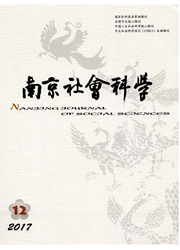

 中文摘要:
中文摘要:
本文认为,从网格化管理设计的目标及其运行特征看,它是在日益复杂化和不确定的治理环境下,在国家不触及现有行政管理体制改革的背景下,政府以数字化、信息化技术支撑,致力于实现精细化和资源整合、联动的管理系统,来有效解决一系列新问题,减低多重压力所做出基层治理方案选择。网格化管理模式可以视为国家对基层治理结构的重建途径,它透过信息平台进行权威整合与行政力量下沉,实现社会控制的目标。然而,缺乏行政管理体制变革,网格化管理出现了悖论,促使我们进一步反思基层社会治理的改革之路。
 英文摘要:
英文摘要:
With the view of its goal and mechanisms,the grid management can be regarded as rebuilding of governance structure at grass-root impelled by the state based on informational technology innovation. Through series of mechanisms,such as integration of resources,centralized authority,transdepartmental collaboration,and reinventing of procedures etc.,local governments try to search for effective governance tools to resolve problems in order to response to challenges form society and reduce pressures from the up-down authoritarian regime as well. At the same time,the grid management appears some limits which brought about managerial paradox. That pushes government forward to think about its access of improvement.
 同期刊论文项目
同期刊论文项目
 同项目期刊论文
同项目期刊论文
 期刊信息
期刊信息
